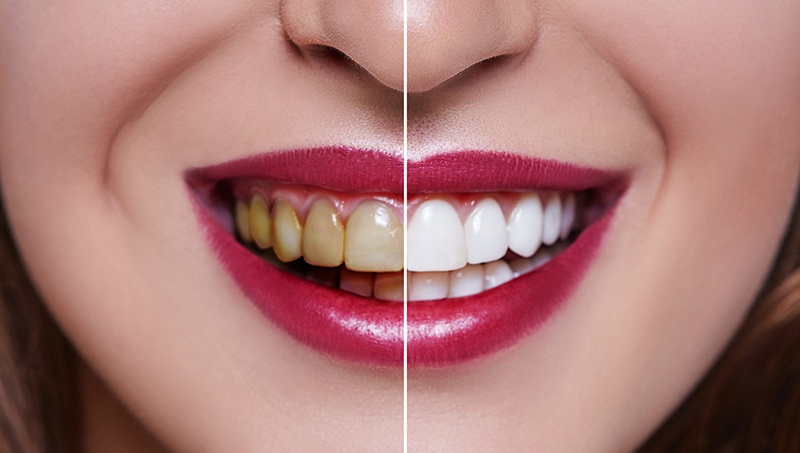How to tell if teeth are rotting under veneers?
The following signs may be indicators that your teeth under your veneers are rotting:
-
The tooth feels loose
-
The veneer is loose
-
The tooth is sensitive to hot or cold
-
The tooth is sensitive to pressure
-
The tooth feels sore
-
The gum is sore or sensitive
-
The tooth or gum is infected
If you experience any of these signs or symptoms, call your dentist at once. If the tooth is rotting, the veneer will typically need to be removed so that the dentist can treat the decay. If the tooth is salvageable, the veneer can be replaced. If the structure of the tooth can’t be repaired, the dentist will advise you on alternative ways to restore your smile.
Can you put veneers on bad teeth?
Veneers cannot be placed over rotten or decaying teeth. Veneers are a strictly cosmetic restoration, intended to improve the appearance of healthy teeth. Cavities and other forms of tooth decay must be treated first or the problem will only worsen.
If you’re trying to improve the look of a tooth that’s damaged or weak, a crown would be a better alternative. It offers the aesthetic you’re looking for while also providing structural reinforcement for the tooth.
In cases where the tooth can’t be saved, your dentist may recommend a complete extraction with a dental implant to replace the missing tooth. Each case is unique, and we can help you to choose the optimal course of action.
Other popular questions about teeth under veneers
Can you get cavities under veneers?
Yes. The veneer only covers the front portion of the tooth. The rest of the tooth can still collect tartar and plaque and ultimately develop cavities. This can weaken the integrity of the tooth, ultimately rendering it incapable of supporting the veneer.
Do I have to floss between my teeth that have veneers?
Yes. The ends of a veneer are vulnerable, making flossing an extremely important part of daily care. When plaque accumulates between the teeth, bacteria can feed off of it and eat away at the exposed enamel along the edge of the veneer. Because the veneer covers the tooth, you might not even notice the cavity until significant decay has set in.
Does a good cosmetic dentist really make a big difference?
Yes. Loose veneers are a breeding ground for bacteria. An experienced cosmetic dentist should have no trouble achieving an airtight bond when applying your veneer. However, if the veneer is poorly bonded, plaque will accumulate and compromise the tooth. If your veneer feels even slightly loose, or if your tooth feels at all exposed, visit your dentist immediately.
How to protect teeth under veneers?
As long as you’re diligent with your oral care, you can ensure a lifetime of protection for the natural teeth under veneers. But you have to be extremely proactive.
-
Brush your teeth at least twice a day—and preferably after each meal—using a non-abrasive gel toothpaste with no hydrogen peroxide, baking soda, or other whitening ingredients; your dentist may recommend or prescribe a toothpaste for you.
-
Use an antiseptic mouthwash every time you brush. This will help to kill disease-causing bacteria, including the most hard-to-reach bacteria.
-
Floss every day to prevent food particles and plaque from collecting on the edges of your veneers and natural teeth.
-
Keep sugary and acidic treats to a minimum. These include sweets, sodas, citrus fruits, and coffee. When you do indulge, make sure to brush your teeth within 30 minutes to an hour.
-
Avoid smoking tobacco products. These can contribute to gum disease and make it more difficult for your gums to support veneers.
Most importantly, visit your dentist at least twice a year: once for a deep cleaning and once for a thorough checkup. A dentist will be able to identify any early warning signs of tooth decay or gum disease that you might not even be aware of. And the sooner you act, the easier it will be to prevent irreversible decay from occurring.
Remember, veneers are designed to protect the teeth they cover. So as long as you do your part with optimal oral care and regular trips to the dentist, you shouldn’t have any problems with teeth under veneers.

